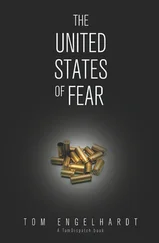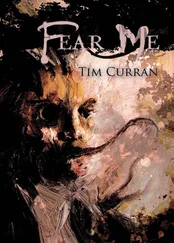“Here,” Mulligan said, “how did you do that?”
Henry looked at him helplessly, looked over at me, back at Mulligan. “ Qué? ” he said, pathos itself.
I told Henry in pidgin what Mulligan said, and Henry responded in an elaborate sentence that ended in a look of supplication.
“I believe he said that he doesn’t know how he did it,” I said. “He plays purely by instinct.”
“Instinct,” Mulligan said, turning back to the dressing table. “Huh.”
Henry remained backstage during our first half. The show went well; the theater was only about two-thirds full, but the crowd was noisily appreciative, raucous even, and I hoped Henry wouldn’t be thrown by the occasional shout or unceremonious address from the balcony. We had a stock of ripostes ready to use in response to any wit in the audience, and we could certainly pick up the slack if Henry were momentarily unsettled.
The half ended with “Across the Sea,” and we were borne offstage on a tide of whistles and hollers and applause. We made straight for the dressing room, where we had fifteen minutes to refresh ourselves, confer, touch up our corking, and make any costume changes that might be necessary. The audience, during that time, was invited to buy beer and spirits in the lobby, and our second half was always more boisterous than the first on the other side of the proscenium.
Henry was there in the dressing room, and I ran through the setup for the second half, reminding everyone of the routine, with Henry sitting stage right, in back until I cued Powell to ask me who he was. Henry pretended not to understand, and I told everyone that I had walked him through and explained it to him already, with difficulty.
When it was time, we all made our way to the stage, where the curtain was down. From the other side we could hear the excited rumble and stirring of the audience; I might almost have been as tense as Henry must have felt. I got him situated — chair stage right, rear, but angled so that I could watch him and either send or receive a signal if needed.
We got ourselves arranged in the front line, which occupied a shallow concavity almost against the curtain, and we sat, adjusting our suits and composing ourselves. Eagan, thumbing his strings, made slight tuning adjustments, Mulligan the same. I glanced back at Henry, wondering what was going through his mind, encountering this roar behind the curtain, as if on the other side were a vast stockyard of restless animals. The sound was oceanic, textured yet indistinct; periodically a voice would rise out of the general boil and become a dominant theme for a few moments, to be joined by another and then be swallowed up in a general babble again. This, I thought, must indeed have been what the Greek army felt like, massed inside the Trojan horse, waiting for the gangplank to drop. I saw Henry run his thumb very lightly over his strings to check the tuning one more time.
The noise from out front abated slightly, suddenly, then reached a new crescendo of applause, hollers, and catcalls, which slowly eased down as a voice arose from the other side of the curtain — Gilman, our house manager and master of ceremonies, announcing the second half. We all straightened up, faced the curtain directly in front of us, and got our instruments into position.
“Ladies and gentlemen,” Gilman began. “It is my great pleasure once again. .”
A voice from the audience hollered, “I’m no gentleman!” and the theater was again awash in hollers and whoops.
“Ladies and gentlemen,” Gilman rode in again, over the din, “ and the talking jackass in row twenty-five! ” and was drowned out now by an even louder wave of approval, hollers, laughter, and shrieks. “Welcome once again to Barton’s Theatre, where only the finest in entertainment may be found. To- NIGHT it is our pleasure — nay, our great privilege — to present once again the sensation of the age, the toast of three continents, the preeminent delineators of Ethiopian melodies, here, for their second act — the Virginia Harmonists !”
A tidal wave rolled in over the final syllables, submerging the entire world under applause, screams, and hollers, a wall of sound, almost physical in its force. I stomped four times with my whole leg to set the rhythm visually for the others, since it was impossible to hear, and we launched into “Jenny Get Your Hoe Cake Done” as the curtain rose slowly in front of us to reveal a mob, cheering, cupping their hands around their mouths, some standing on the seats, clapping their hands over their heads, as far back into the cavernous hall as one could see.
I glanced quickly at Henry, who sat, slack-jawed, in his chair staring vacantly out at the audience, as we had planned it. Behind that mask, what was he seeing? What was he thinking? As I sang and played the bones, I saw and heard it through his eyes and ears — the five of us in the front line — angles, elbows, knees, bouncing— whack on the tambourine; bones clicking and arms crisscrossing on and off the beat; the banjo and the fiddle neck and neck with one another as the line sang the familiar song. Although the noise from the audience drowned us out at first, I fancied that one could have all but heard the music from the interplay of our gestures and motions alone. The audience gazed up at the five men in blackface in our front line with the kind of adoration and even ecstasy that must have greeted Napoleon riding with a conquering army.
The opener finished, we rode directly in on top of the applause with “River Man,” the five of us singing in our famous harmony:
If I could sing like a river man
I’d take mah Lucy by de hand
Up and down de riverside
Me de husband, she de bride. .
Eagan played the “Virginia Reel,” which we could not get away without performing, Mulligan essayed “Essence of Old Virginny,” to which he added a perceptible increment of bravado — spurred, I am sure, by Henry’s, or Demosthenes’, presence. I had moved “Fire Down Below” to the first half, and instead we placed Burke, as Brother Rastus, at this point in the second half, to deliver one of his signature monologues in rhyme, half-spoken, half-sung, full of pathos. He quieted the applause that followed on Mulligan by rising and shouting, “ Cease! ”
The audience immediately began to settle down, and when Burke hollered “ Cease! ” once more, they were paying attention.
“ I has a mournful story to tell you now ,” Brother Rastus began.
“ And de way you tells it is eben mo’ mournful ,” Brother Scamp — Eagan — shouted. Laughter, hoots of derision from the audience. Short-lived, though, because Burke was a favorite, and the crowd knew what to expect.
“Peace be unto you, Brother Scamp. Hold your criticalism until I’se finished wit’ my tale of woe.”
A silence descended now as Burke began.
In Old Virginny, way down South,
I left Old Master there,
And dear old kindly Missus
In her favorite rocking chair.
They were so kind and good to me
But home I would not stay.
I left the old Plantation;
I up and ran away.
I went up North to Boston
And there I made my home
’Mongst barren trees and frozen lakes
And thought no more to roam.
But many nights I dreamt about
The old plantation days
When Master let me serve the guests
On sparkling silver trays.
I longed to see my brothers
And taste a mincemeat pie
And frolic at the quarters
Читать дальше










